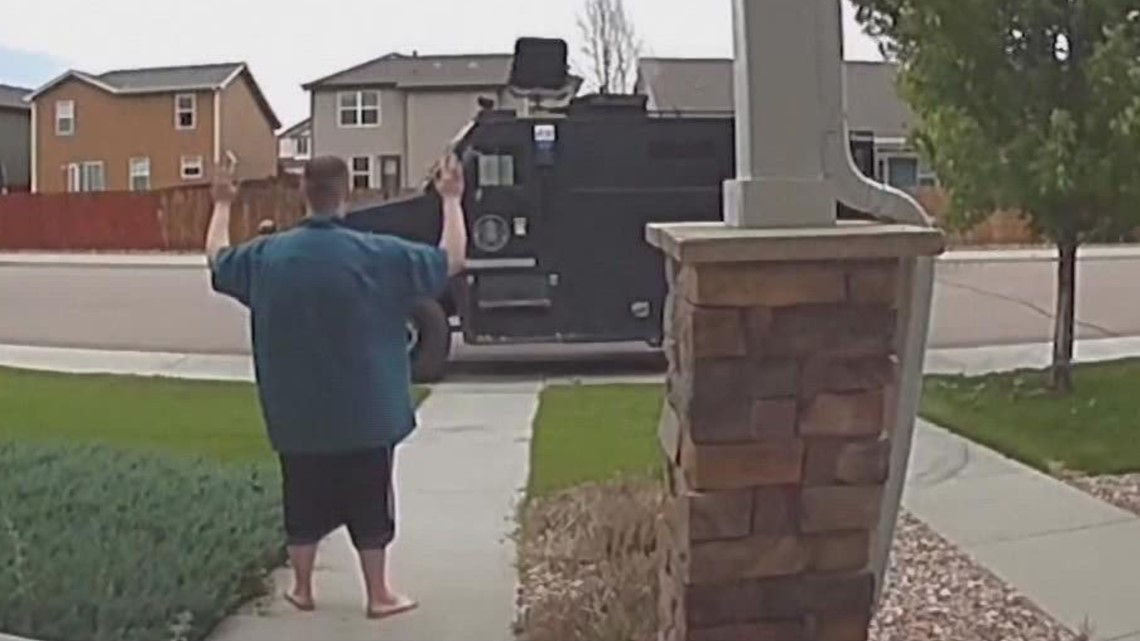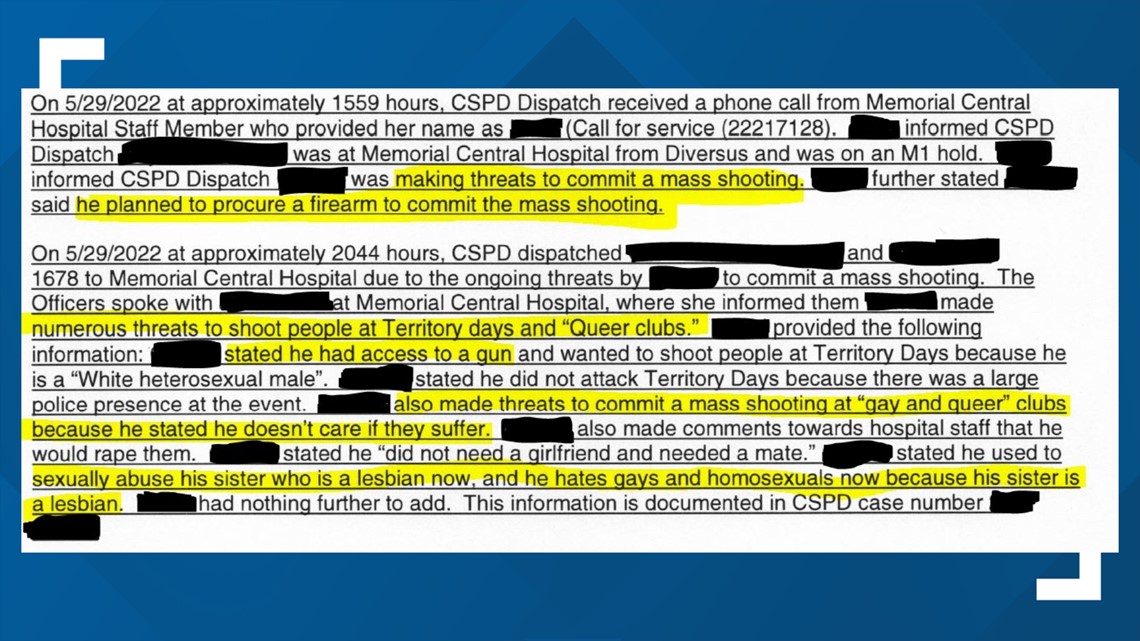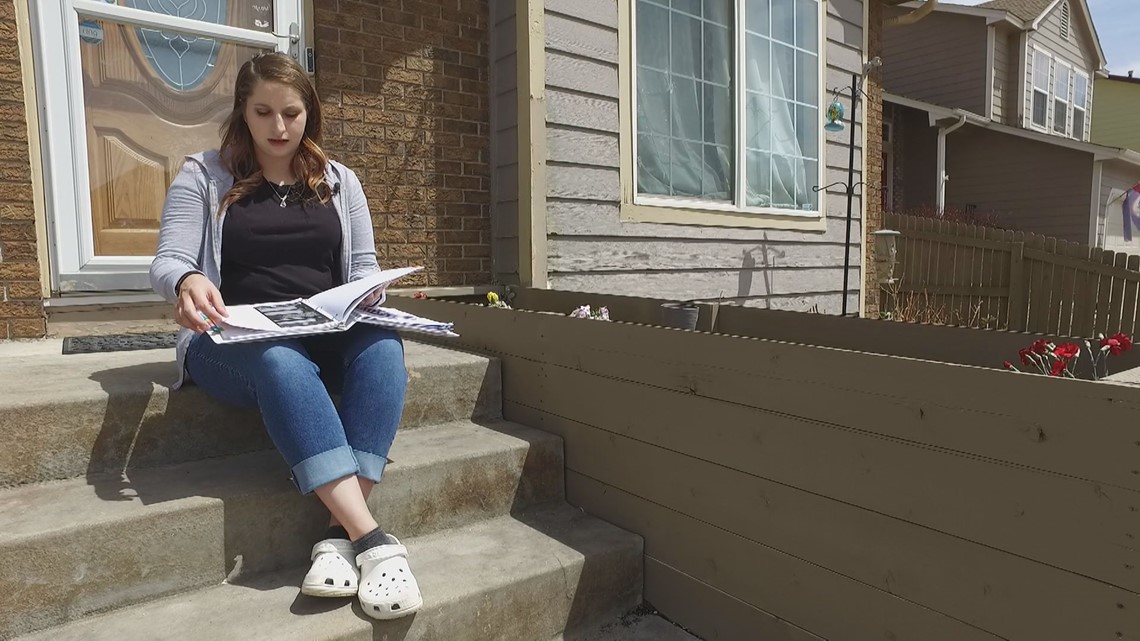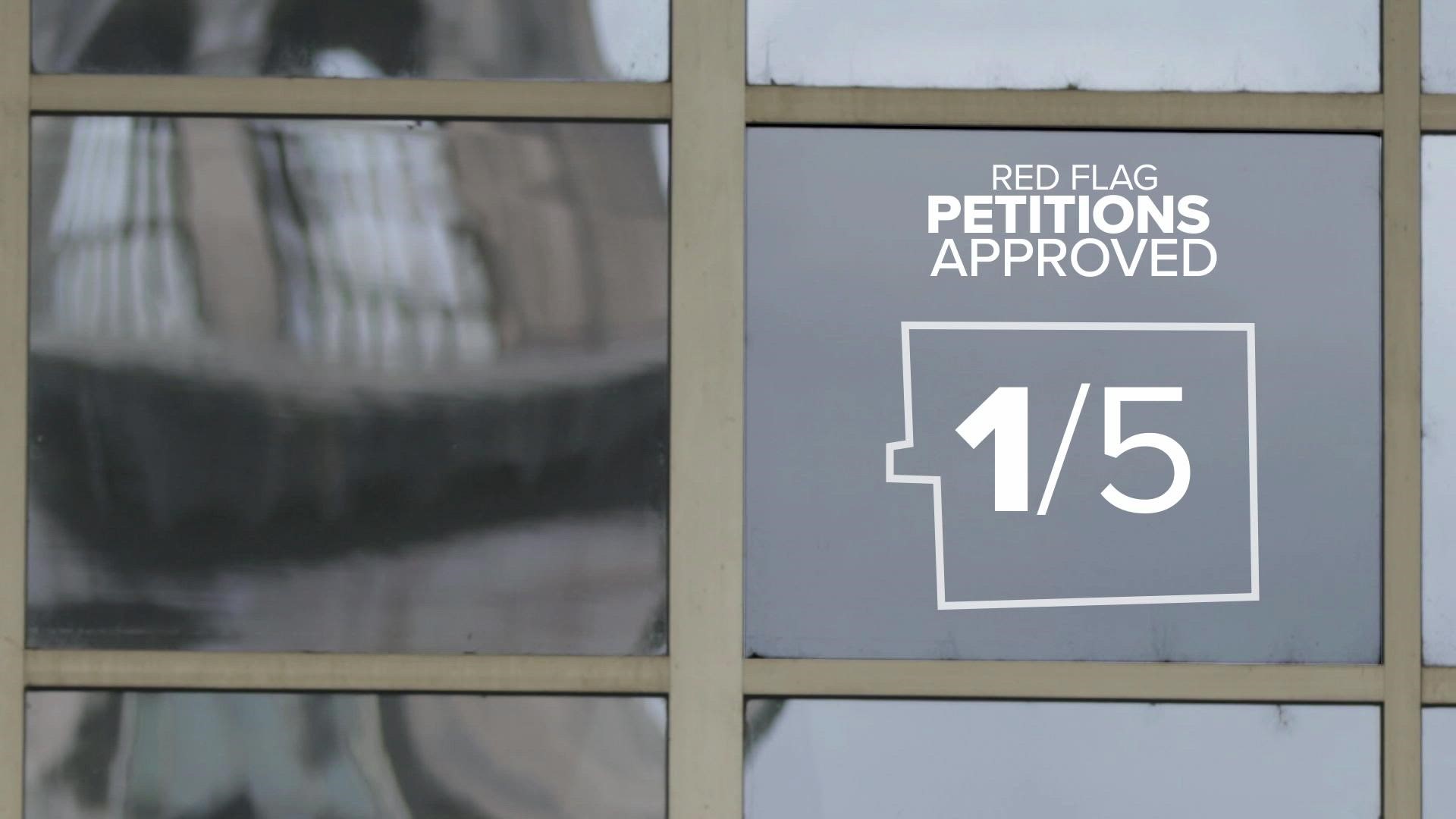DENVER — Gov. Jared Polis on Monday called for the expansion of the “red flag” law in Colorado that gives loved ones and law enforcement the ability to take guns away from people who appear to be dangerous.
A roommate, relative or law enforcement officer can ask a judge to remove firearms from someone the court deems to be a “significant risk” to themselves or others. In a statement to 9Wants to Know, Polis’ spokesman said the governor supports expanding the list of those who can request a red flag order – officially known as an “extreme risk protection order” – to include district attorneys and possibly others.
“Gov. Polis appreciates the work of the Colorado sheriffs and law enforcement who have utilized the extreme risk protection order law, has been fortunate to work with commonsense public safety leaders who are doing the work on the ground to enforce these laws and it’s important that the law is utilized and followed,” Conor Cahill, Polis’ press secretary, wrote. “Gov. Polis looks forward to working with the legislature and anyone to help expand this life-saving law to allow district attorneys or others [to] utilize it.”
The idea comes in the wake of the Nov. 19 Club Q shooting that left five dead, 17 others shot, and five people with other kinds of injuries. In June 2021, the person now suspected in the Club Q shooting was arrested after a bomb threat and a standoff with El Paso County sheriff’s deputies. The criminal case was eventually dropped, and no one from the sheriff’s office sought a red flag order.


A monthslong 9Wants to Know analysis of every single red flag petition filed in Colorado during the first two years the law was on the books found that judges approved 95% of the petitions filed by police officers – but a little less than a third of those sought by average citizens.
Despite having the second-most red flag cases in the state, El Paso County has the lowest approval rate in the state among the large Front Range counties. There was an approval in 23% of the county’s 53 cases.
El Paso County Sheriff Bill Elder has repeatedly made it clear that he opposes the law. In 2019, the county passed a resolution declaring itself a sanctuary from the enforcement of the red flag law. The sheriff has not filed an application for a red flag order, according to court records.
“We’re not going to pursue these on our own,” he said in an interview earlier this year with KRDO in Colorado Springs. “Meaning the sheriff’s office is not going to run over and get a court order. I’m not about to start that.”
Elder’s office did not respond to a request made after the Club Q shooting for an interview from 9Wants to Know.
His successor, Joe Roybal, did not immediately respond to a request to field questions about whether he would change the office’s policy after he takes office in January.
The Club Q shooting may have been prevented under Colorado’s red flag law. In the June 2021 incident involving the suspect – whose attorneys said is nonbinary and uses the pronouns “they” and “them” – an El Paso County Sheriff’s Office press release said the suspect’s mother reported that the suspect “was threatening to cause harm to her with a homemade bomb, multiple weapons, and ammunition.”
Although they were arrested and jailed on suspicion of multiple counts of felony menacing and kidnapping, prosecutors eventually dropped the case and the records were sealed. Had law officers pursued a red flag order, it’s possible the suspect’s guns could have been confiscated for up to a year.
During a standoff with officers before being arrested, the suspect live streamed video from inside a rented home.


"This is your boy,” the suspect said on the video, walking from room to room. “I've got the f------ s--- heads outside. Look at that. They got a bead on me. You see that right there? F------ s--- heads got their f------ rifles out. If they breach, I'm a f------ blow it to holy hell. So go ahead and come on in, boys. Let's f------ see it."
Applicants can ask the court to renew the order for a year if a judge finds there is a continued threat of violence. An analysis of court data found extensions were sought in 7% of cases and approved 75% of the time.
According to data from the Colorado Judicial Branch analyzed by 9Wants to Know, the first time an El Paso County law enforcement agency tried to use the law was when the Colorado Springs Police Department used the law in June 2022 to try to prevent another mass shooting at an LGTBQ+ club.
An officer wrote in the affidavit that one Colorado Springs man should not have access to guns because of “threats to commit a mass shooting at ‘gay and queer’ clubs because he stated he doesn’t care if they suffer.” The court approved the red flag order.


In September 2022, CSPD petitioned the court for a red flag order after another Colorado Springs man sent 12 emails to a CSPD detective threatening to buy a gun and kill him.
9NEWS is not naming either suspect because they have not been charged with crimes related to the incidents. The red flag law does not require a criminal charge to move forward.
A successful civilian red flag petition in El Paso County
In Christine's case, Fountain Police did not file the paperwork on a red flag application, but did tell her about the process. She said her brother has a history of mental health issues and problems with alcohol, and called a friend on FaceTime where he put his gun in his mouth.
9NEWS agreed not to use Christine's last name or identify her brother.


She went to court with a binder of evidence – including statements from a friend and her brother’s ex-wife and text messages from her brother. In one message, he wrote: “I swear to God, if one f------ cop shows up, there's going to be a standoff with your niece and nephew in the house ... so don't even try that bulls---.”
“I told the judge 100 times, you know, I know who he can be, and he's not himself right now,” Christine said. “I just want him to get better. And I think this is a step to helping him get better, is not giving him that opportunity to get chaotic with weapons.”
The judge granted the petition. Her brother surrendered his guns to their mother, who sold them.
Those red flag applications that are approved are often written like an incident report typically compiled by law enforcement. Christine said she thinks her documentation made a difference in convincing a judge to grant her petition.
“I mean, I walked into court with a binder,” she said. “I put everything out there that I had that made me feel, you know, that he shouldn't be around weapons.”
Christine said it was intimidating to not be an attorney and go up against her brother’s court-appointed lawyer. Her advice for others in a similar position is to try to get the red flag order. This way, you know you did everything you could.
“Don't give up just because you think you're not going to get it,” she said. “If you don't ask for it, there's no chance of you getting it.”
What the updated data shows
From the day the red flag law took effect on Jan. 1, 2020, to Nov. 22, 2022, 9Wants to Know found 64% of the 359 statewide cases had some sort of approval. That could come in the form of a 14-day temporary extreme risk protection order or 364-day extreme risk protection order.
Less than half of the orders lasted for a year. Forty-seven percent of the cases (168) had a yearlong order preventing firearm ownership.
Six courts have never approved either a 14-day or yearlong red flag order, but each only had a handful of cases before them. Thirty-four percent of Colorado’s counties, or roughly one in three, haven’t had a red flag case.
Reach investigative reporter Zack Newman through his phone at 303-548-9044. You can also call or text securely on Signal through that same number. Email: zack.newman@9news.com. Call or text is preferred over email.
Contact 9Wants to Know investigator Kevin Vaughan with tips about this or any story: kevin.vaughan@9news.com or 303-871-1862.
SUGGESTED VIDEOS: Colorado Springs Club Q shooting

